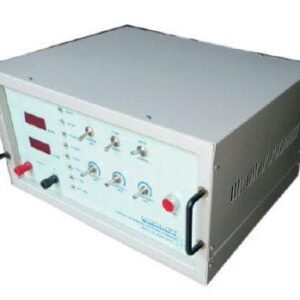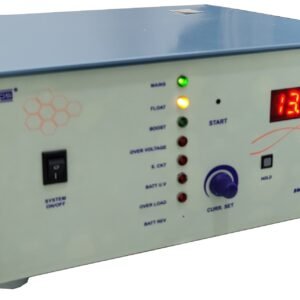Battery Charger
HOW BATTERY CHARGERS WORK
Batteries have become an intrinsic part of our everyday lives. Whether it is a mobile phone, emergency light, car battery, inverters, or any other electric equipment, the use of batteries is widespread. They increase the convenience for users by enabling the portability of devices. The performance of a battery depends on their use and how carefully they are charged. Therefore, it is crucial to invest in a good battery charger. A battery charger or recharger gives the battery the required power to continue operating by forcing an electric current through it.
A battery works by converting its stored chemical energy into electrical power. Once the electrolyte of the battery is used up, it needs to be recharged. A battery charger is a device that provides Direct Current (DC) to the battery to restore the used-up electrolyte. So ideally, when all the electrolytes of the battery are restored, it’s current supply should stop.
The whole charging process is a combination of charging, stabilizing (optimizing the charging rate), and terminating (knowing when to stop charging). Charge and discharge rates of the batteries are given as C-rate (Charge Rate). It is the measure of the rate at which the battery is charged or discharged with respect to its capacity (measured in Ah). For example, if a fully charged 4Ah battery is discharged at a 4-ampere rate, then it will take an hour to get fully charged. Most modern gadgets like mobile phones, electric vehicles, and laptops use lithium-ion batteries, which last for a long time when they are frequently charged.
The charging should immediately stop once a battery is fully charged. But standard chargers have no way of knowing when the charging has reached 100 percent, and they keep supplying power to the battery. This is the reason you see batteries heating up–it’s a way to release the extra power supplied to them. Overcharging batteries can not only damage a battery but also reduces its life. There are various types of battery chargers available like a trickle, time-based, simple, smart charger, pulse, motion-powered, solar, fast, and three-stage charger.
A charger is always manufactured for a specific battery based on the amount of current it will provide and the time it will take to fully charge the battery. This means that the charger designed to charge a particular battery may not be suitable for another battery. Manufacturers of gadgets recommend that the same brand of battery charger should be purchased to charge the batteries. You can get the best from your battery charger by not charging different capacities or chemistries of batteries together. This can damage batteries over time.
Choosing the right charger
There are a few factors which need consideration while selecting a battery charger
-
Battery type
-
Voltage rating
-
Maximum charging current
-
Battery size
-
Battery capacity in Ampere-hour
-
Cost
A good battery charger will help the batteries to perform well. Avoid overcharging your batteries to increase their life and save them from permanent damage. Good battery life will also help in improving the performance of your electric equipment.
Hopefully, you now have a better perspective on chargers and how they work. If you need outlets with charging ports, or even an EVCS, give us a call. We can help!
Baid Power Services Pvt. Ltd. is a reliable full-service electrical company serving residential and commercial customers in Citrus, Hernando, and Pasco Counties. We offer electrical repairs, boat lift wiring, remodels, low voltage lighting, generator hookups, RV power, electrical inspections, fan installation, home lighting, new circuits, panels, and more.
Showing all 3 results



